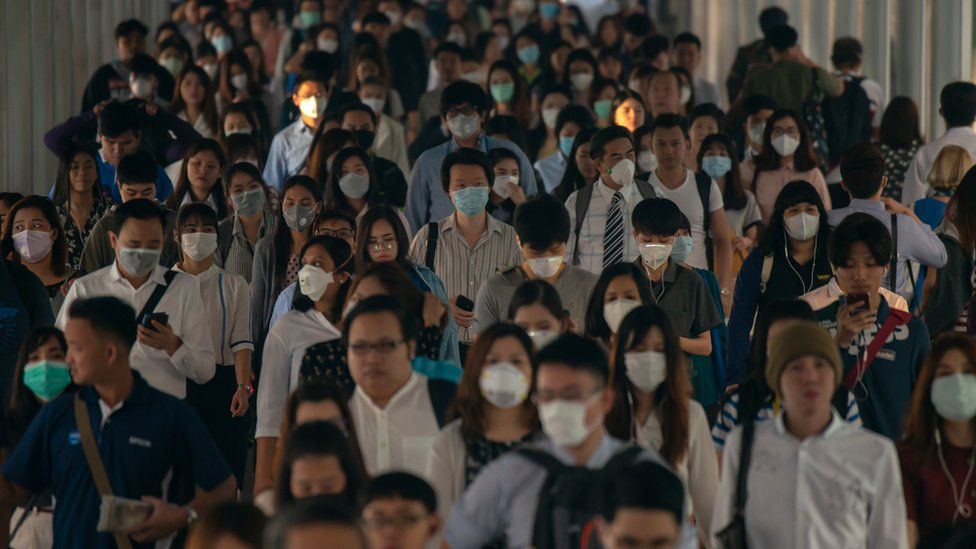
In late December of 2019, the first cases of the novel coronavirus (2019-nCoV, COVID-19) were detected in the city of Wuhan in China’s Hubei province, leading to an explosive pneumonia outbreak of an unknown etiology. Since then, the illness has rapidly spread to different parts of the world, and South Korea has been no exception. As of March 26th, there has been a total of 9,241 reported cases in Korea and 131 individuals that have lost their lives due to the highly contagious disease. Through this article, the Sungkyun Times (SKT) will be discussing COVID-19, the virus that has the entire world shaking with fear.
What Is COVID-19?
About Coronaviruses
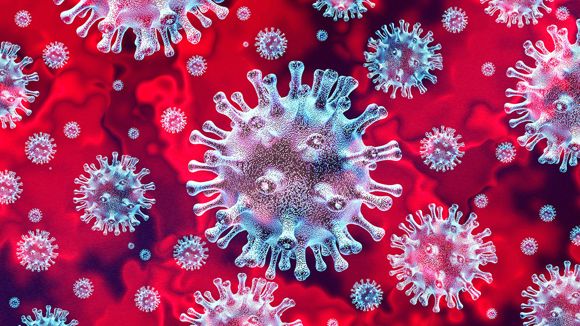
Coronaviruses, named after the crown-like projections seen on their surfaces, are a group of common viruses that affect both human beings and animals. Alongside adenoviruses and rhinoviruses, coronaviruses are one of the three most common types of viruses and account for 10% to 30% of cases of the common cold, especially during wintertime. These viruses typically infect the membranes of the respiratory tract and cause a wide variety of symptoms, including fever, cough, shortness of breath, and breathing difficulties. Although coronaviruses are usually associated with the common cold, in severe cases, they can also cause respiratory complications such as pneumonia and bronchitis.
Coronaviruses can be further divided into four main sub-categories: alpha, beta, gamma, and delta. While viruses pertaining to any of the four classifications can affect animals, only alpha and beta coronaviruses are able to infect human beings. Before the discovery of the novel coronavirus (COVID-19), only a total of six alpha and beta coronaviruses were identified: four that cause nothing more than a simple cold and two that cause Middle East Respiratory Syndrome (MERS) and Severe Acute Respiratory Syndrome (SARS) respectively. Although it has been concluded that COVID-19 is an entirely different type of coronavirus, it is of importance to note that the new species closely resembles its virulent predecessors. The Korean Center for Disease Control and Prevention’s (KCDC) findings show that COVID-19 shares 89.1% of its clinical spectrum with the SARS coronavirus (SARS-CoV); 50% with the MERS coronavirus (MERS-CoV); and 39% to 43% with the remaining four coronaviruses. This explains why the novel coronavirus shares both symptoms and incubation periods with SARS and MERS.
A Quick Recollection
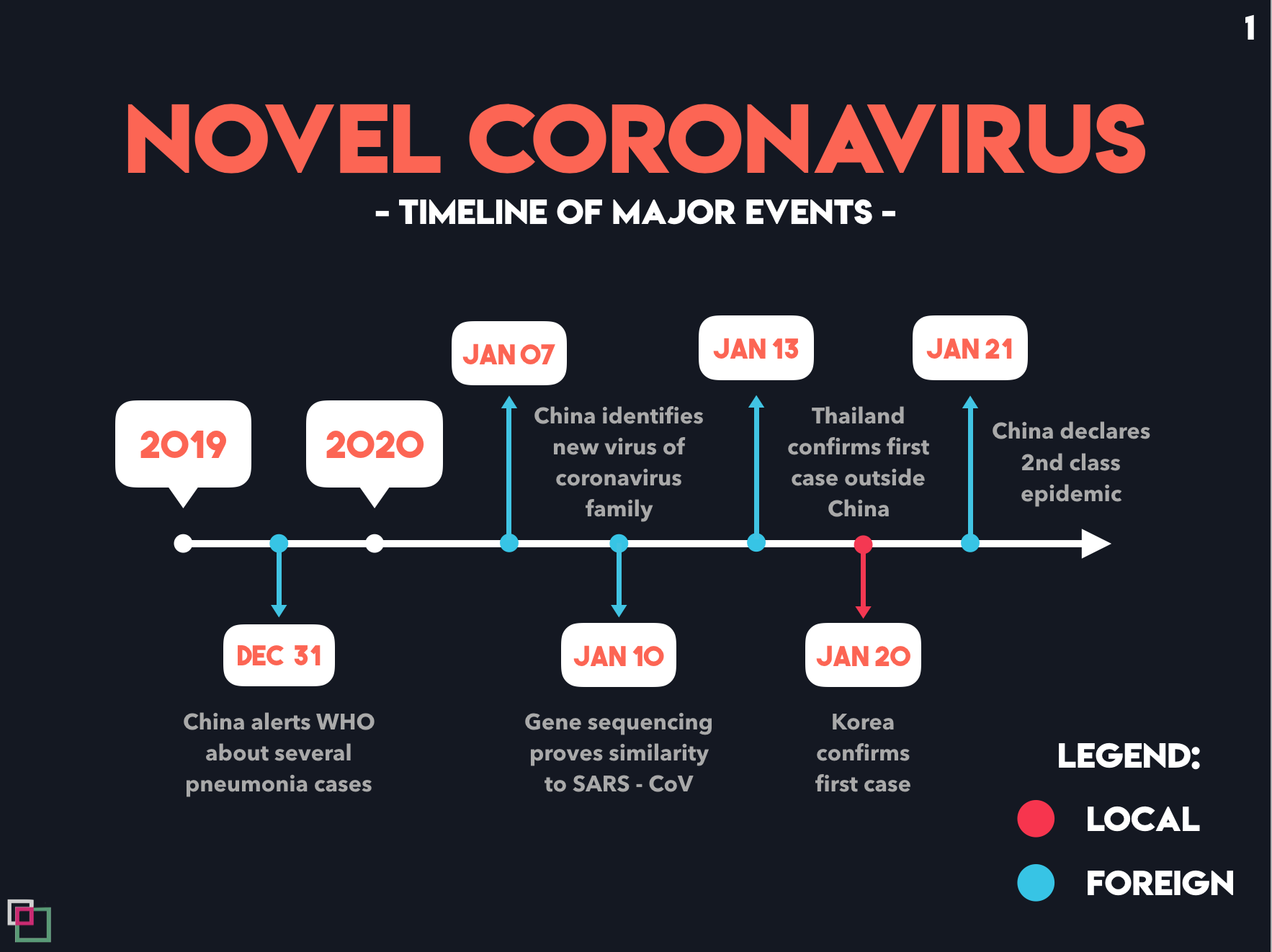
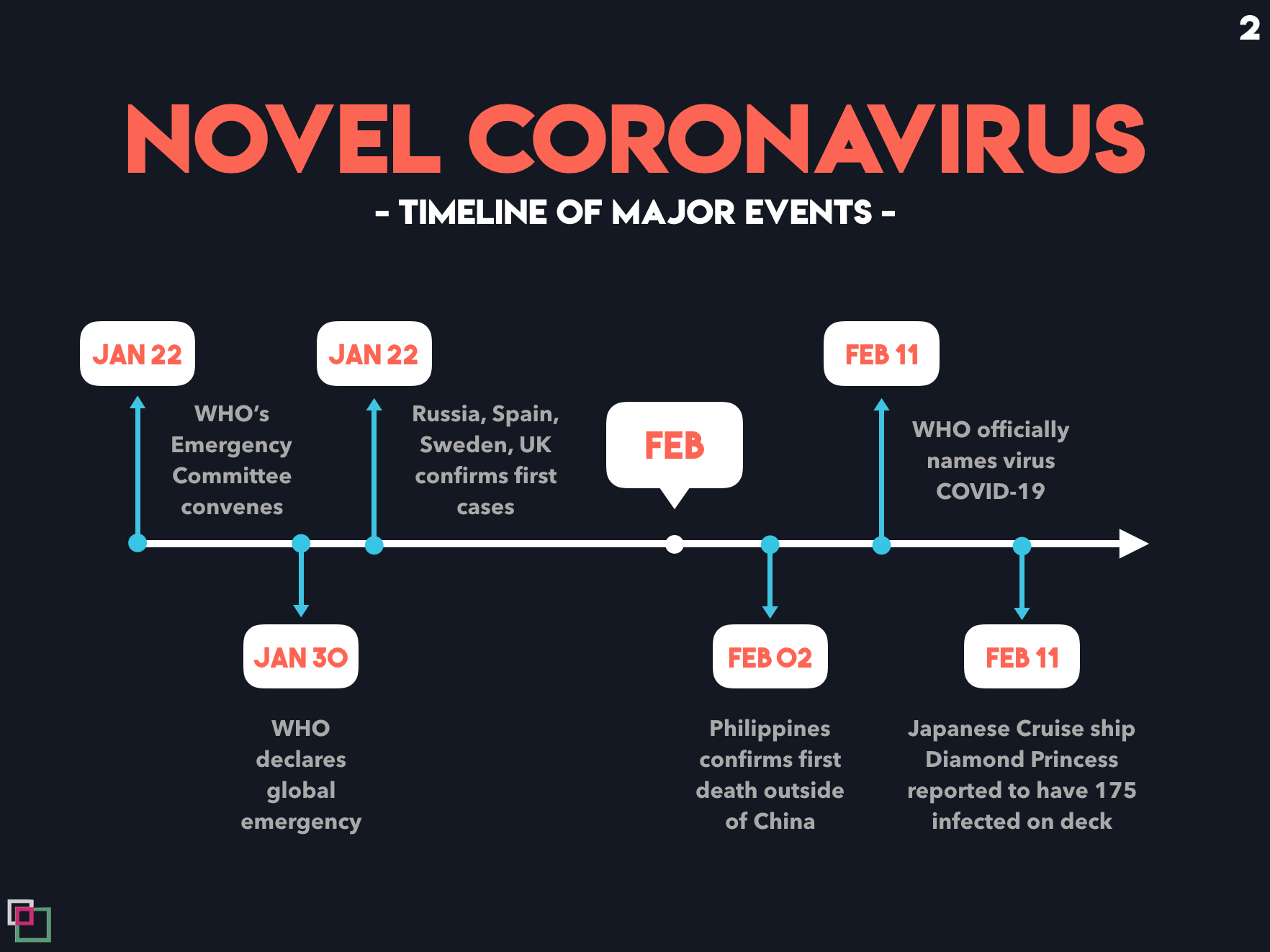
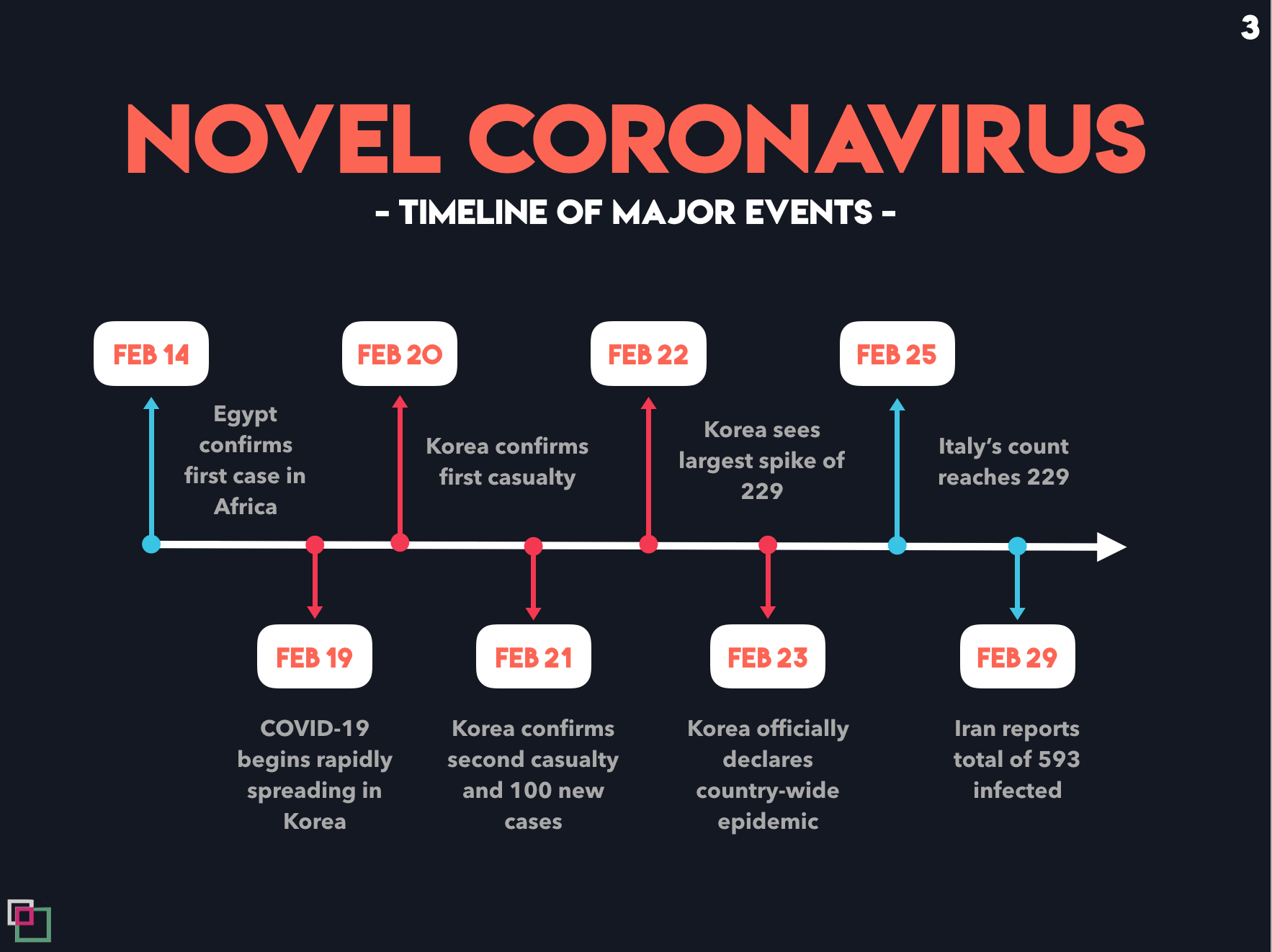
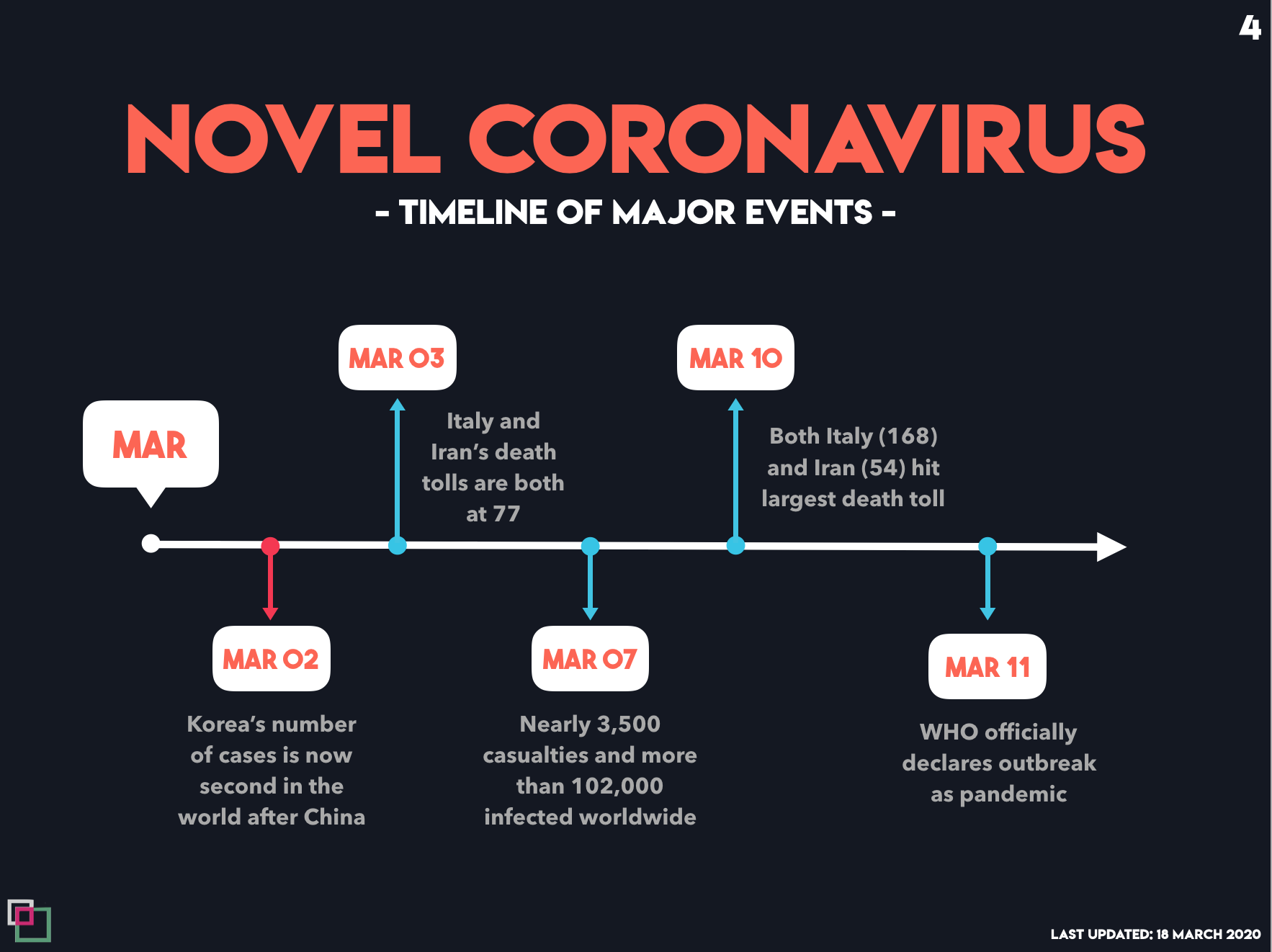
A Reaction to Every Action
Newton’s third law of motion states that for every action, there is an equal and opposite reaction. The COVID-19 outbreak does not stray too far from this basic rule of nature. While the virus continues to spread globally at a rapid pace, one can expect there to be corresponding consequences.
- Prejudicial Pandemic
A Global Perspective
There seems to exist a direct correlation between the number of COVID-19 patients and the number of discriminatory remarks aimed at individuals of Asian heritage; as the number of those affected by the virus skyrocket, there is a significant increase of reports from Asian people that they are being glowered at, being on the receiving end of derogatory terms, and even being physically assaulted by complete strangers. Earlier this year, Courrier Picard, a newspaper company based in France, had published a newspaper with the headline “Alerte Jaune,” which translates to “Yellow Alert.” The header in question was presented alongside a photograph of a Chinese woman, and this led to a public outcry from French-Asian citizens. Soon thereafter, the hashtag #JeNeSuisPasUnVirus, meaning #IAmNotAVirus, was seen trending on Twitter. More incidents began to follow. The next month, according to news reports from the British Broadcasting Corporation (BBC), a student from Singapore was physically attacked by a group of four men who told him, “I don’t want your coronavirus in my country.” As long as the outbreak is not yet under control, the number of testimonies relating to racially aggravated attacks towards Asian individuals is expected to continue growing at a brisk pace.
A Local Perspective
Although discrimination has been a particularly big problem overseas, Korea is not exempt from the racial narrative. A hostile tension is currently observable within the Korean community, coexisting with fears of being infected by the virus, and this negative blend of antagonism and concern has proved itself to be very rampant on the internet. On the 28th of January, a photograph was posted onto an online community, with the clear intent of having the South Korean public boycott China. The photograph was modified from the widespread “No Japan” movement, with text saying, “Boycott China,” “Corona Virus,” “I don’t want to die,” and “I don’t want to be infected.” The Chinese are not the only victims of criticism, however, as COVID-19 caused a disastrous in-country outbreak. The majority of the few thousand patients in South Korea were identified to be from Daegu and North Gyeongsang, the outbreak epicenters of the country, and condemnation started heading their way. People online started wishing natural disasters to occur in these regions, stating that this would be a surefire way of putting an end to the crisis. The harsh behavior of people online has done nothing but aggravate the already-fragile mental state of the country.
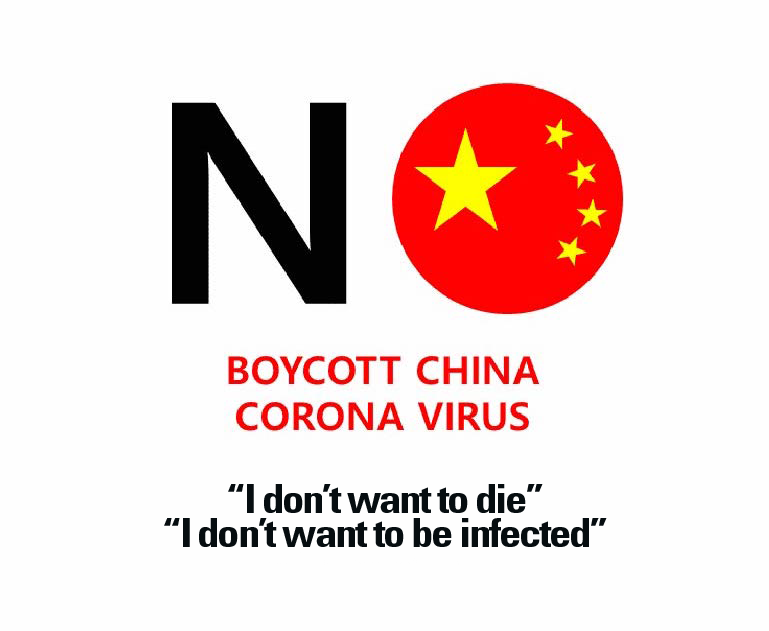
- Economic Implications
A Global Perspective
Although it is still early to tell for sure, it would not be an overstatement to say that the COVID-19 outbreak is now one of the most significant events in history to pose a major threat to the global economy. The majority of the world’s confirmed cases are concentrated in China, where the first-ever cases of the illnesses were reported to be from, and in an attempt to minimize global dissemination, Chinese authorities have decided to impose a lockdown in certain cities, restricting the movement of millions of their citizens. Many business operations have been suspended as well, and this leaves us with grave expectations for the future. China, being the world’s largest manufacturer, plays a very big role in the global market, and their waning production level will drag down the global economy along with itself, leaving the global economic climate to be more unstable than ever.
To make matters worse, COVID-19 has already made its way all around the globe, especially in countries such as Italy and Iran, where the numbers of confirmed cases have both spiked and reached well over 20,000. This could also bring detrimental effects to each affected country, further lowering expectations for the future of our economy. Unfortunately, the damage does not stop here. The United States of America (USA), the largest economy in the world, has also been affected by these unfortunate circumstances. Stocks have been plummeting since late February, and the entire stock market has entered a phase of extreme volatility. The energy, finance, and manufacturing sectors of the Standard & Poor’s 500 Stock Index (S&P Index 500), in particular, have all experienced a detrimental downfall of over 30%. As the outbreak continues to force the cancellation of trips, business operations, and anything of the like, economic damage will continue to heighten, perhaps on the way to reaching grim goals for this year.
A Local Perspective
Lamentably, Korea’s economy has also been suffering under the hands of COVID-19. The government has announced that as an effect of recent events, Korea’s economic climate is currently under significant distress. Specific ramifications can be seen through official reports regarding recent consumer trends. The tourism industry, in particular, has experienced a colossal loss as the number of Chinese tourists that wish to visit Korea has decreased by a total of 76.1%, and this is the lowest that Korean tourism rates have fallen to since January 1999. The gross income of retail stores has also been affected, with both discount shops and department stores experiencing massive drops of 19.6% and 30.6%, respectively. This is a direct result of customers preferring to stay home and take care of their individual health. While the most effective way to combat a pandemic such as this is to prevent the further spreading of the disease, it has shown to influence businesses negatively, especially those that are self-owned. Because of the rapid decrease in consumers, many employers are forced to shut down their services to minimize financial loss.
A Bright Look into the Future
Adequate Government Support
The unexpected longevity of the COVID-19 outbreak has led to many cases of basic worker rights being stripped away from employees. As a result of businesses being suspended, many employers, prioritizing the minimization of financial loss, are left with no choice but to cancel contracts one-sidedly, force employees to take their unpaid leave for an indefinite period of time, and avoid providing employees’ salaries. On the 13th of March, the city of Seoul has announced that to alleviate these particular concerns, a certified group of lawyers and public labor attorneys will soon begin providing personal assistance to employees that have had their rights disregarded by an employer. The specialists would be tasked with giving personalized and individualized advice and, when necessary, will help people file lawsuits. At the same time, Seoul is planning on additionally providing a separate consulting service for employers as a prevention method. Some employers may be going through tough times of their own, prompting them to rely on extreme measures. This service would help these individuals consider better options considering their current situations, and in the long run, hopefully, nip the situation in the bud and prevent the violation of rights from happening in the first place. The city also plans to distribute flyers advertising these services, with hopes of spreading as much awareness as possible.
Stricter Community Guidelines
In times like this, especially when invidious remarks about a particular group of people are rampant on the internet, stricter guidelines must be enforced. In 2012, when Korea finally allowed internet users to upload posts and comments anonymously, the number of swear words posted onto the web escalated very quickly. People took advantage of the fact that they were now allowed to conceal any of their real information onto the web. To solve this problem, Korean internet giants, including Naver and Kakao, decided to implement a system that would automatically censor any swear words that users would type onto the interface. This system proved itself to be very effective as expletives on the web decreased by half from 6.8% to 3%. When users find their way around the system, such as changing the spelling of certain words to avoid censorship, one can add these modified words into the system, and these words will also be censored. Inputting derogatory terms that relate to the outbreak will definitely decrease the tension and hostility seen online and improve the experiences of fellow internet users.
At present, the entire world is extremely irritable and on edge due to the seemingly interminable COVID-19 pandemic. This, however, must not excuse individuals from acting irrationally and being discriminatory towards other people. Rather than pointing fingers and ostracizing those that are suffering from life-threatening conditions — which will do nothing but hinder the process of containing this outbreak — we should all try our best to abandon any xenophobic thoughts and provide nothing but love and support to those that need it most. Freedom of speech is a gift only until it is exploited.
